One of the most popular professions out there, a dental hygienist, examines patients teeth and gums and record the presence of disease or abnormalities. In this article, we will present all the conditions and requirements needed on how to become a dental hygienist.
Before we continue on how to become a dental hygienist there a few more job attributions we must mention. Such a professional must clean teeth, examine patients for signs of oral diseases and provide other preventive dental care. Also, they also must educate patients on how to improve and maintain good oral health.
In addition to obtaining an associate’s degree in dental hygiene, there are a few skills that the US Bureau of Labor Statistics recommends for people who wish to follow such a career:
- Compassion
Most patients are in extreme pain or fear when having to undergo dental work. The dental hygienist must, therefore, be sensitive to their feelings.
- Attention to Details
There are specific rules and protocols to help dentists diagnose and treat patients. In rare cases, dental hygienists work without the supervision of a dentist.
- Dexterity
As any practitioner of the medical arts, a dental hygienist must be good at working with their hands. The work is done in tight quarters with very precise tools and instruments.
- Interpersonal & Communication Skills
Dental hygienists must work closely with fellow dentists to take care of patients’ needs.
- Physical Stamina
Some procedures may take long hours and might present physical strains especially when one must bend over patients for a prolonged time.
(Want to know more about how long it takes to become a dental hygienist? Check out Jackie’s piece here.)
How to Become a Dental Hygienist in 3 Steps
There are many questions in regards to dental hygienist requirements or how long does it take to become a dental hygienist. It is important to know that there are many dental hygienist programs and that serious dental hygienist education must be undergone before even considering to become an active professional.
1. Dental Hygienist Education Requirements
First things first on how to become a dental hygienist, one such professional must receive their education through academic programs. They can be taken at community colleges, technical colleges, dental schools or universities. Community colleges programs usually take two years to complete. Graduates receive an associate degree. Through it they can take license examinations, either national and state or regional. This will allow them to become licensed and work in a dental office.
If a person follows university-based dental hygiene programs, then they usually require at least two years of further schooling. Universities offer baccalaureate and master’s degrees. These levels are need to be completed for a career in teaching or research, as well as for clinical practice in school or public health programs.
Dental hygiene program admission requirements vary depending on the school. High school level courses such as health, biology, psychology, chemistry, mathematics and speech are beneficial to obtain a dental hygienist degree.
Dental hygienist education programs offer clinical education in the form of supervised patient care experiences. These programs also include courses in:
- Liberal Arts: Speech, Psychology.
- Basic Sciences: Anatomy, Pharmacology, Chemistry, Microbiology, Physiology.
- Clinical Sciences: Dental Hygiene, Radiology, Dental Materials.
If you are wondering if that is all the education needed on how to become a dental hygienist keep in mind that such a professional can choose to pursue additional training in such areas as education or public health.
2. Becoming a Dental Hygienist: Accreditation
In term of how to become a dental hygienist, receiving the proper education is just the first step. The Commission on Dental Accreditation (CODA) of the American Dental Association is responsible for the accreditation of dental hygiene education programs. In the United States of America, there is around 330 CODA accredited dental hygiene programs.
3. Examination and License
Licenses are given by each state to dental hygienists in order to provide dental hygiene care and patient education. Almost every state requires that dental hygienists to be graduates of commission accredited dental hygiene education programs. Thus, they will become eligible for state license.
Furthermore, almost all states require candidates for a licensee to obtain a passing score on the National Board Dental Hygiene Examination in addition to passing the state authorized license examination. The state and regional examination tests are meant to assess clinical dental hygiene skills, as well as their knowledge of dental hygiene related subjects. People who wish to know how to become a dental hygienist might want to treat this step with seriosity as it may be the most important. Even though a person underwent all the necessary education without a state license, you can not perform in this field.
How to become a Dental Hygienist in Texas or California
Regardless of the state you want to practice, anyone who wishes to follow a career as a dental hygienist must complete an educational program accredited by CODA (the Commission on Dental Accreditation) of the American Dental Association.
Furthermore passing the license examination is a must in order to perform in this field of practice. Regardless of the fact that some schools might have prerequisite courses from chemistry to anatomy and pharmacology, all aspiring dental hygienist practitioners require the license from CODA.
Any person who wishes to know how to become a dental hygienist must, therefore, remember these fewrequirements:
- That a dental hygienist education program approved by CODA must be undergone.
- A dental hygienist degree must be obtained from an accredited school.
- The final written examination must be passed to obtain the license from CODA.
In order to know how to become dental hygienist these are the steps you need to take to successfully perform in this medical field. Although it requires quite a lot of education programs and preparation for license examination, this is not necessary the end. As medical technology and treatments progress, often dental hygienists must keep up with the latest discoveries in this field.
If you liked our article and are interest in learning more about this profession and its benefits read our article on ‘What is the Average Dentist Salary?‘
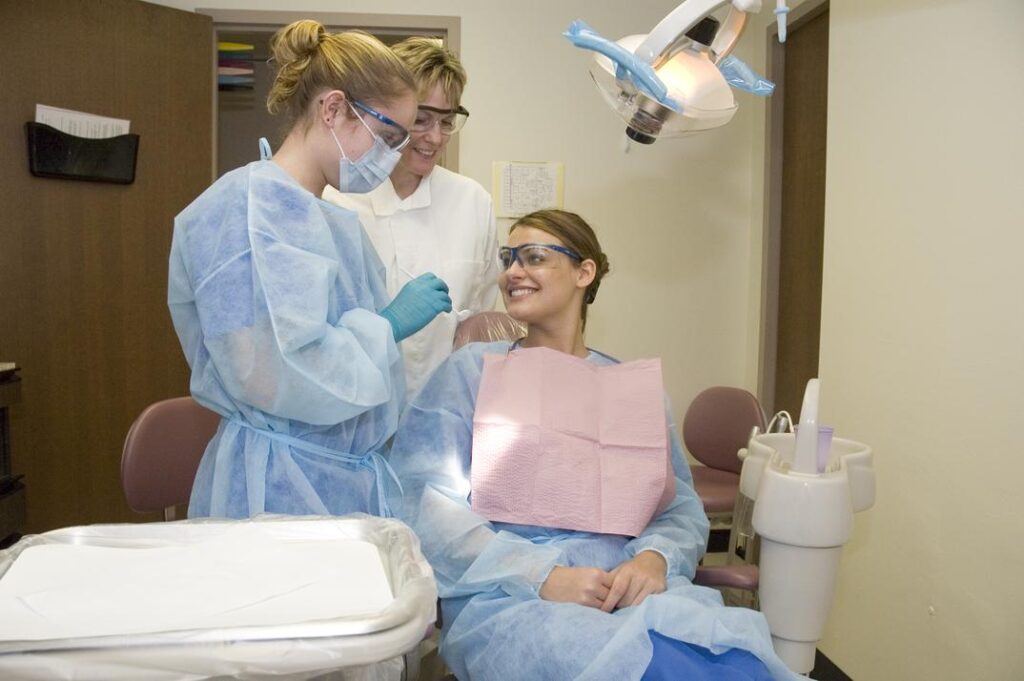
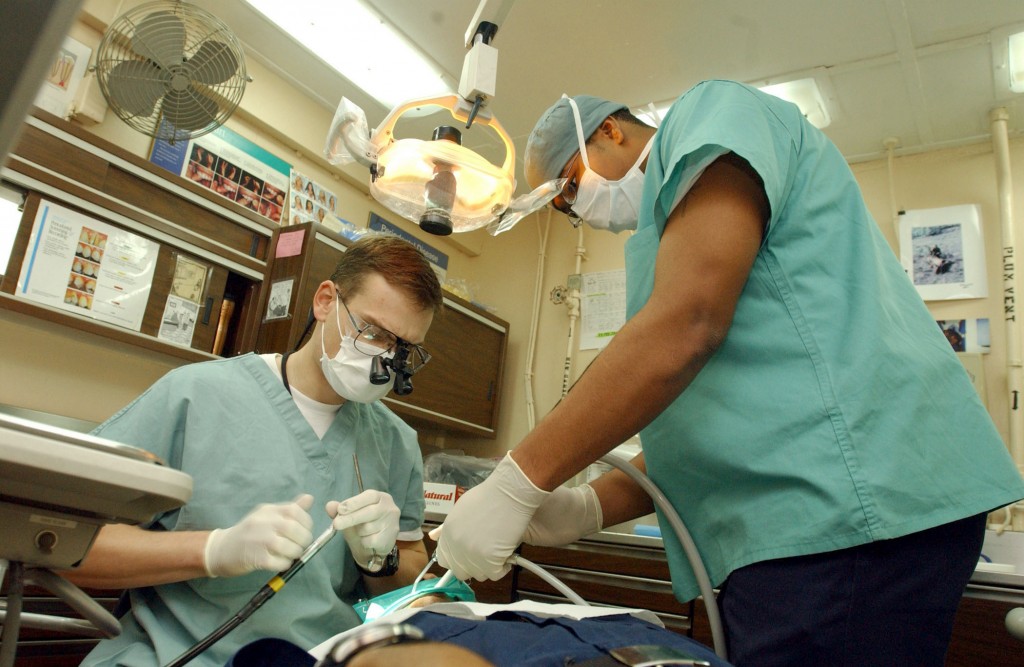

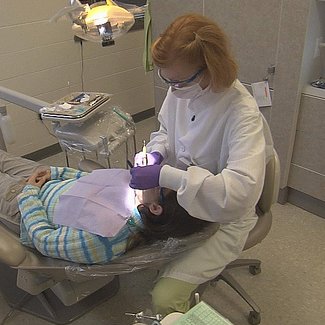
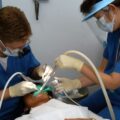



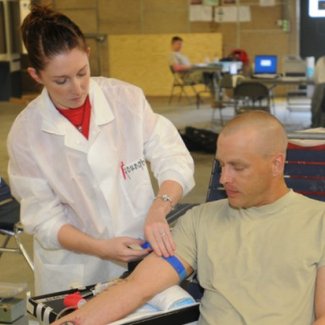



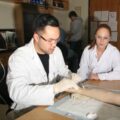

Leave a Reply